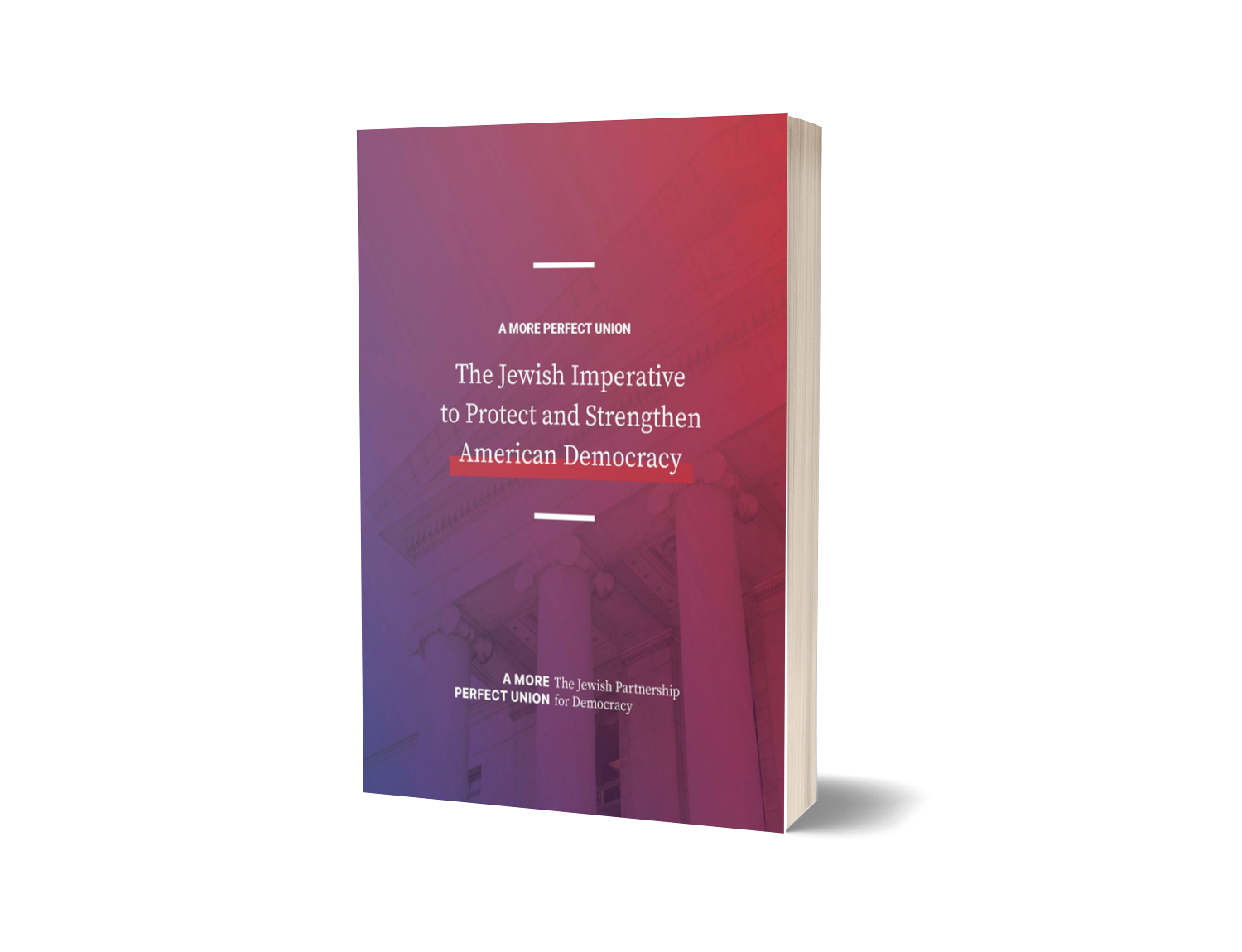
Partner Spotlight:
Reform Congregation Oheb Sholom
A Jewish Community Walks the Walk of Pluralism
Reform Congregation Oheb Sholom is no stranger to civic engagement. As a founding partner of the Jewish Partnership for Democracy, this community has long been active in participatory democracy work. But in 2024, they wanted to try something new. Recognizing the deepening political divisions in their community and beyond, Oheb Sholom launched an ambitious new project: an interfaith clergy book group focused on bridging political divides.
“If we as clergy can't get together and have these conversations productively, how can we expect anybody else to do so? You've got to walk the walk, not just talk the talk,” said Rabbi Brian Michelson.
Inspired by his experience at a recent One America Conference, which brought together clergy and other leaders for challenging conversations, Rabbi Michelson selected High Conflict by Amanda Ripley for the book group. The book explores how entrenched conflicts arise and offers insights on how to de-escalate and transform them into more productive disagreements.
Rabbi Michelson’s ideologically diverse congregation, which he described as politically "polka dotted” – not solidly red or blue nor centrist – clearly demonstrates the need for constructive dialogue.
Strategic Priorities: Free, Fair, Safe, and Accessible Elections
Network Commitment: Reform Congregation Oheb Sholom will engage an interfaith clergy book group focusing on the book High Conflict by Amanda Ripley. Participants will be provided with a copy of the book and will attend two moderated discussions. A local community member with training from Braver Angels will be guiding the conversation.
Partner since: 2022
Collaboration was key to the success of the initiative. Rabbi Michelson partnered with a local pastor with a different political perspective to broaden the invitation's appeal. They opted to host their series at a library, as a neutral communal space, and carefully selected a Braver Angels-trained facilitator who had experience with clergy.
He also credited the Jewish Partnership for Democracy and its Ignition Grants program as key motivators to expand their work.
“We hold that civic involvement is a Jewish value that we have turned into a positive experience for the congregation, and for the community that we are trying to be. [A More Perfect Union helped] concretize some of our goals and helped us structure a lot of the work we were doing beforehand. I never would have started the book group without the Ignition Grant. It's inspired us to keep pushing and doing new things.”
The initiative’s success has led to plans for the group to meet three times a year to discuss other topics, highlighting the community's desire for continued dialogue and meaningful conversations.
"I was surprised by how grateful people were to have this opportunity. And this is easy to replicate,” said Rabbi Michelson. “Sit down and ask, “why do you believe this, and which part of your faith brings you to this conclusion? It isn’t about changing people's minds. It was about having the curiosity to understand each other.”
“The perspective that I can provide is from a Jewish perspective. I've talked about toxic polarization. I've talked about the need to trust our election process, governmental processes, and the way that we see this as a part of our civic responsibility to the community,” explained Rabbi Michelson. “We can have these conversations. We can work with people we don't necessarily agree with and still find common ground for the good of the community.”
Get involved: For information about how your organization can work with A More Perfect Union,
contact our team at info@jewishdemocracy.org.
Dig into our argument for democracy.
To help you understand our argument, approach, and evidence, we’ve published this brief white paper on the Jewish Imperative to Protect and Strengthen American Democracy.
What is transpartisanship?
We believe that protecting and strengthening American democracy is not a partisan issue.
That's why we pursue our work in a spirit of transpartisanship, which rejects the "us vs. them" mindset that characterizes so many political conversations.
We believe that whatever issues we care about individually – from religious freedom to climate change to fair elections – we all have a stake in American self-governance. Engaging effectively in self-governance requires respect and compromise, and we can only exercise these muscles when we focus on what brings us together rather than what sets us apart.
Ultimately, transpartisanship is both an approach and a commitment – to ourselves, to each other, and to future generations.


